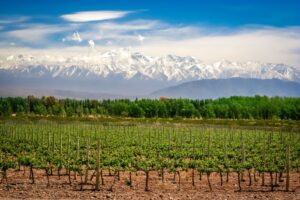
Corporate-startup collaboration is vital for the growth of Latin American agrifoodtech, say GLOCAL panelists
The growth of Latin America agrifoodtech presents a lucrative chance for startups and corporates to collaborate and advance the food system.

The growth of Latin America agrifoodtech presents a lucrative chance for startups and corporates to collaborate and advance the food system.

FLORA will invest in early-stage agrifood startups via the launch of its $80 million fund backed by Israel’s Kibbutzim community.

Coca-Cola and eight bottling partners have closed a $137.7m VC fund focusing on sustainability investments that will be managed by Greycroft.

Oritain —a New Zealand-based firm using forensics to verify the origin of everything from cocoa to coffee—has raised a $57m series C round.
As an independent entity, Performance Livestock Analytics plans to grow its data analytics platform and expand to new markets.

The Innova Memphis Fund VI will invest in early-stage startups addressing the automation and digitization of agriculture in rural areas.

Omnivore has announced the first close of its third fund, with $150m to pump into India startups aiming to make farming more profitable, resilient, and sustainable.
Hyfé, a Chicago-based startup transforming food processing wastewater into feedstocks for biomanufacturing and clean water, has raised a $9 million seed round led by Synthesis Capital.
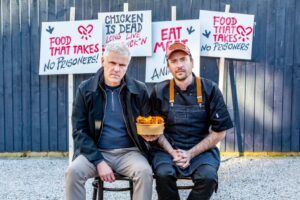
This week, Omeat emerged from stealth with an ‘elegant’ solution to scaling cultivated meat; UPSIDE Foods and GOOD Meat finally got the green light to sell cultivated chicken in the US, and drone startup Guardian Agriculture raised $20m.

UK-based alt meat brand VFC has acquired distressed meat-free brand Meatless Farm, which laid off most of its staff earlier this month after a key investor expected to provide a capital injection backed out.

BetterBrand—a Los Angeles-based startup making high-protein, ultra-low-carb bagels—has raised a $6 million series A round led by VERSO Capital.
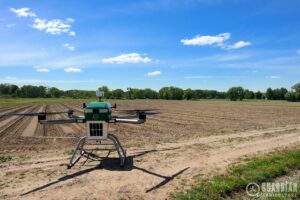
Guardian Agriculture has raised $20m in a series A round to expand its autonomous drone technology to farms across the US and ramp-up manufacturing of its SC1 aircraft.
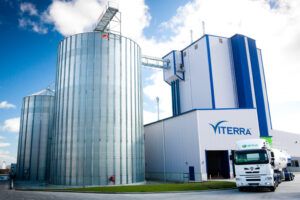
The deal will create an agricultural giant and likely face regulatory scrutiny in certain countries including Argentina and Canada.
Nestlé is partnering with VC firm the Yield Lab Latam to support agtech startups in Latam and bolster its own sustainability goals.

Agrifoodtech investment in France surged 39% to $1.3 billion in 2022 against the backdrop of a 46% decline in Europe and a 44% slump in global agrifoodtech funding over the same period.

DouxMatok, the Israeli firm behind patented technology that makes sugar taste sweeter, has rebranded as Incredo and raised $30 million in a series C round to expand its sugar reduction platform.

When the team at NCH Agriculture, a $1bn agriculture investment business, founded Agroprosperis in 2006, they didn’t have a plan and understood little about farming. Today Agroprosperis is the largest producer of crops in the Black Sea region, and is returning 15% a year to its investors.
2022 was a lousy year for agrifoodtech investing, and India was not immune to the headwinds impacting global markets, with funding to Indian startups in the field dipping 33% year-over-year to $2.4 billion, according to AgFunder’s new India AgriFoodTech Investment Report 2023.

Japanese dairy giant Megmilk Snow Brand Co is investing in plant-based proteins via a joint venture with Singapore-based Agrocorp International.
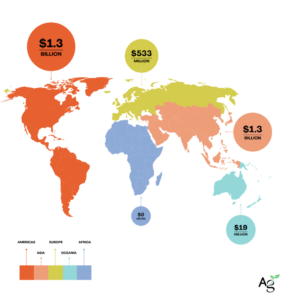
The Americas and Asia tied as regions with the most ag biotech funding in 2022, with each raising $1.3 billion.

Sponsored
Restoring the soil quickly is key to capturing returns in regenerative agriculture